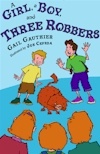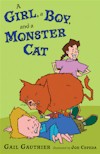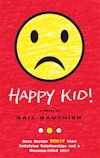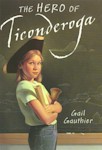And You Thought Things Were Bad On Wall Street
If you have some extra time and are feeling masochistic, you might enjoy reading The End by Boris Kachka in New York Magazine. You won't find a lot of what Kachka has to say big news if you've been reading other publishing articles for the last four or five years. He's just pulled everything together in one spot. He has a lot of people information, though. He is, after all, writing for New York Magazine, and New York City is where a lot of the publishers are.
Some bits that caught my eye:
1. Nothing sells books anymore. Kachka says, "Traditional marketing is useless" and quotes an agent (a "powerful" one, too!) as stating, "Media doesnít matter, reviews donít matter, blurbs donít matter." I have been seeing this kind of thing in articles over the past year or so. Peter Miller from Bloomsbury told Kachka that book trailers are "all the rage right now, but I would love to see an example of one video that really did generate a lot of sales." I wonder about that, myself, especially since a lot of book trailers are pretty awful.
2. Borders "is on death watch." I knew the chain was having trouble, but I wasn't aware things were that bad. (Hmmm. Am I evil to speculate about the kind of going- out-of-business sale it could have?) This is bad news for sales because Borders is still big, and it can still promote and sell a lot of specific titles. Plus, if it goes under, that cuts down still more on the number of bookselling outlets.
When I heard last summer that Borders was suffering and looking for a buyer, I wondered if the loss of that chain might mean a mini-resurgence in independent bookstores. After all, the big chains destroyed the indies. If the big chains (or at least one of them) disappear, won't that leave a vacuum that indies can fill?
I know. I'm not factoring in Amazon.
3. Kachka calls "co-op"--publishers paying for book placement in big bookstores--payola. (I'm just repeating what I read.) But evidently it's not frowned upon with books the way it is with music. Though, since we've already all agreed that nothing sells books, anyway, I don't know that co-op does much good. I guess I don't have to feel badly that no one has plunked down money for my books to be stacked at the front of a store because no one would buy them, anyway. (Though, to be honest, I think The Hero of Ticonderoga may have been placed in a nice cardboard case of some kind with some other books for a while. I don't know how that came about. I didn't ask any questions.)
4. If I understand the whole publishing situation that Kachka (and others before him) have described, a big, massive bestseller can carry a publishing company. For a while. That's why they're willing to pay enormous advances, advances that are too big for some of us to comprehend, for books both by established and new authors that they think have the potential to sell big. (Does anyone else think this sounds a lot like gambling?) But sometimes publishers are wrong.
Publishers losing money is bad. Very, very bad.
5. Kachka suggests that the book industry may have to change dramatically, moving away from relying on bestsellers, for instance. Book publishing may look very different in the future.
Personally, I can tolerate change. The wait to get there might drive me crazy, though.
The link to New York Magazine came from Blog of a Bookslut.
Labels: Marketing, publishing








0 Comments:
Post a Comment
<< Home